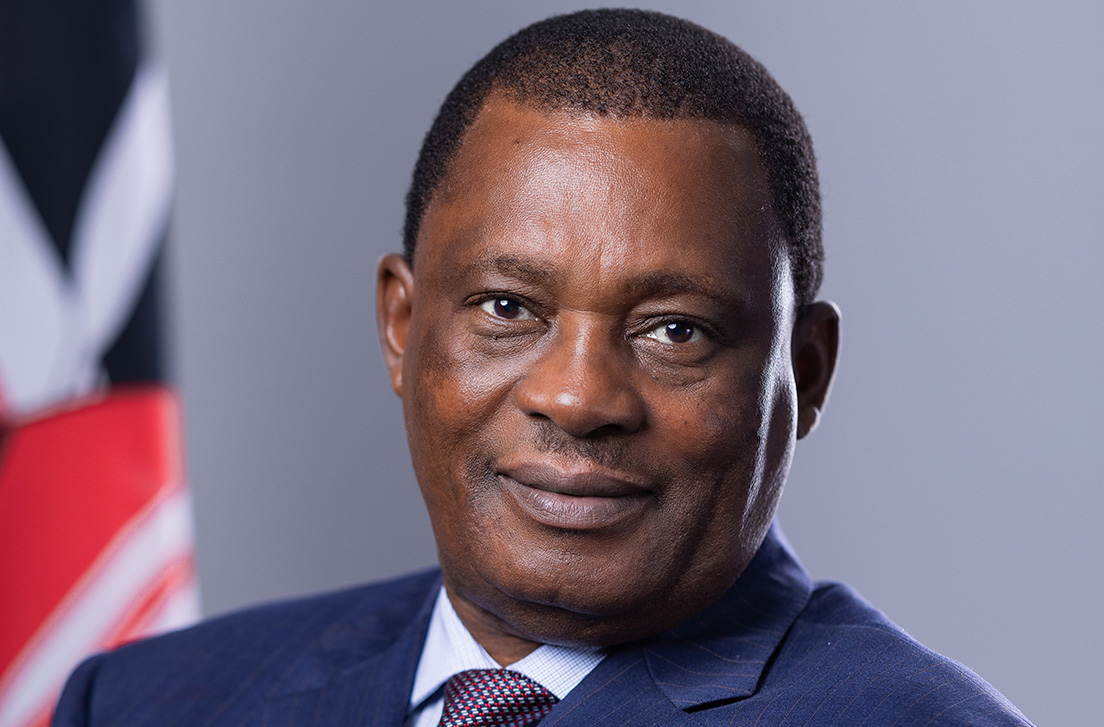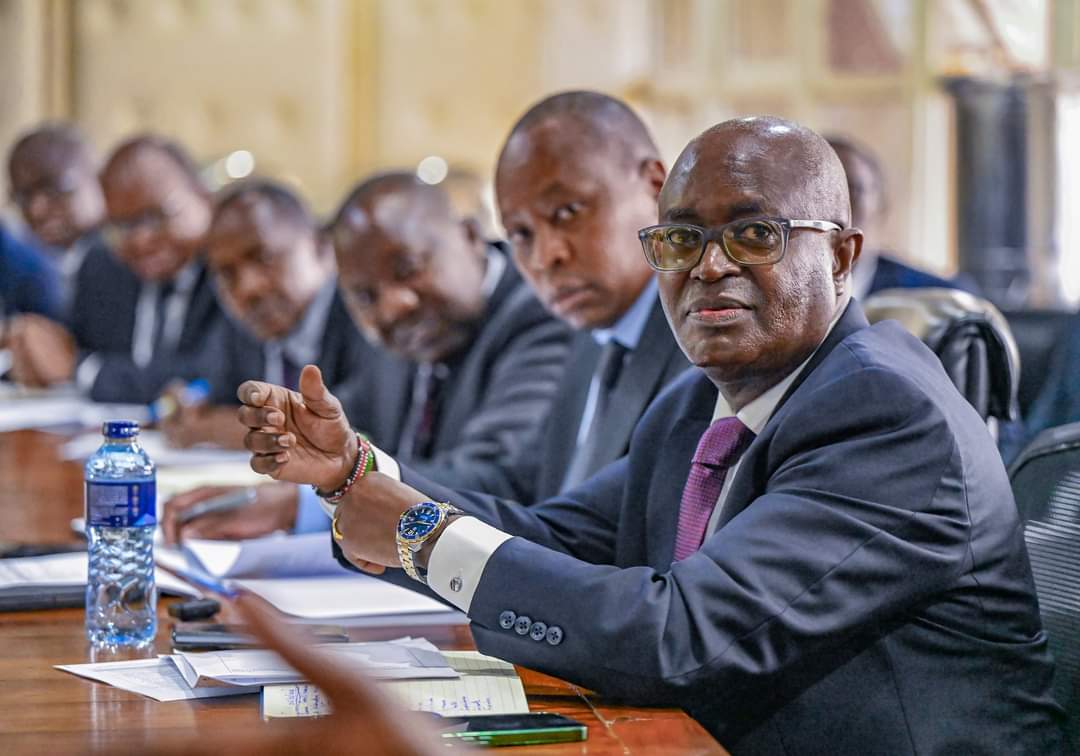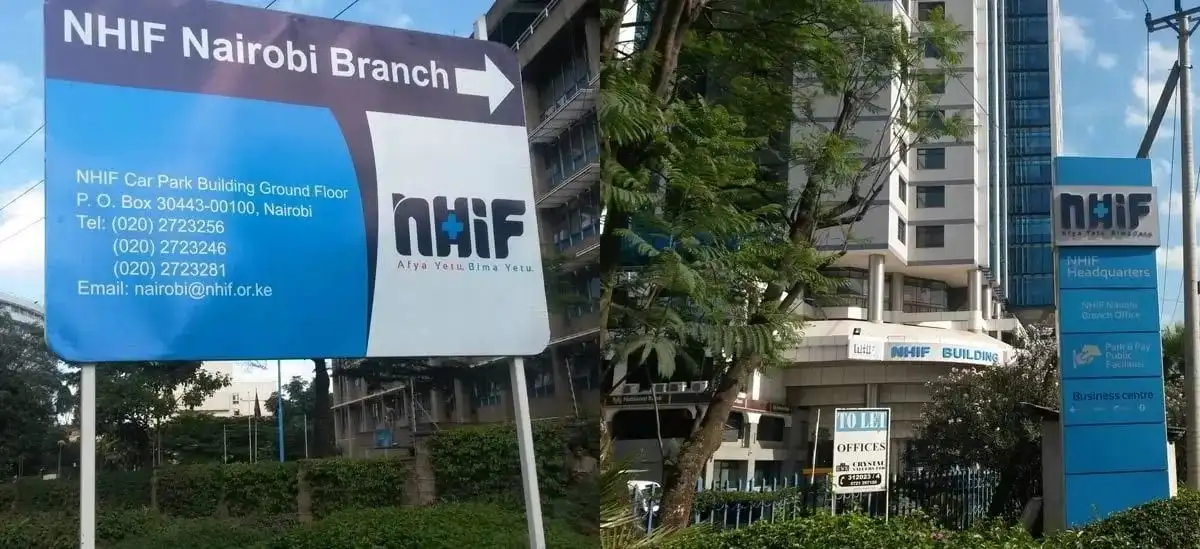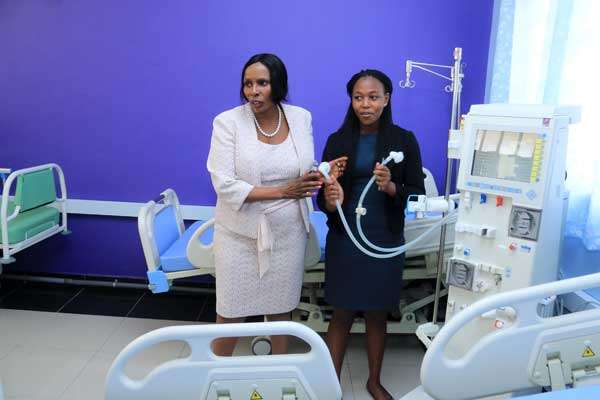Based in Nairobi but with a nationwide mandate, the unit will be headed by an officer of the rank of Senior Superintendent of Police (SSP) from one of the Services within the National Police Service (NPS). Though operating independently, the unit will collaborate with oversight bodies, including the Independent Policing Oversight Authority (IPOA)
The government has succumbed to mounting pressure and formed a special multi-agency unit to investigate and curb the escalating cases of abductions, kidnappings, and enforced disappearances across the country. The 30-strong special unit comprises officers drawn from the Directorate of Criminal Investigations (DCI), the General Service Unit (GSU), and the National Intelligence Service (NIS), among others.
Based in Nairobi but with a nationwide mandate, the unit will be headed by an officer of the rank of Senior Superintendent of Police (SSP) from one of the Services within the National Police Service (NPS). Though operating independently, the unit will collaborate with oversight bodies, including the Independent Policing Oversight Authority (IPOA).
Directorate of Criminal Investigations Director-General Mohamed Amin has reportedly assembled a team of seasoned detectives and instructed them to take decisive action against this alarming trend of crime, which has drawn widespread condemnation.
The formation of the unit is said to have the backing of President William Ruto and Inspector General of Police Douglas Kanja. Headquartered at the DCI headquarters, Mazingira House, the unit commenced operations this week.
National Police Spokesman Michael Nyaga Muchiri stated that while he was not aware of the new squad’s establishment, both the IG and DCI had committed before a judge to thoroughly investigate all alleged abductions.
“There is a team of officers from the DCI’s Homicide and Investigations Bureau tasked with ensuring that all alleged abductions, kidnappings, and enforced disappearances are investigated and the perpetrators brought to justice,” Muchiri said.
The NPS has previously set up multiple specialised police units to tackle various security challenges, including the Anti-Terrorism Police Unit (ATPU), Diplomatic Police Unit (DPU), Anti-Narcotic Unit (ANU), Judiciary Police Unit (JPU), and the Anti-Stock Theft Unit (ASTU). Others include the Land Fraud Unit, Homicide Unit, Cyber Crime Unit, and the recently formed National Government Administration Police Unit (NGAPU) to support NGAOs in maintaining law and order.
However, the government has faced immense pressure from the public, human rights organisations, and even the United States over the rising wave of abductions and enforced disappearances.
Public Service Cabinet Secretary Justin Muturi has openly criticised the government, insisting that ultimate responsibility lies with President Ruto. Available evidence has implicated state security officers in some of these abductions, which bear the hallmarks of a well-organised operation, possibly orchestrated by state agencies.
On 14 January, CS Muturi alleged that his son, Leslie Muturi, was abducted by NIS officers and released only after President Ruto personally intervened, directing NIS Director-General Noordin Haji to secure his release.
Muturi detailed his ordeal in a statement to the police, recounting his futile attempts to reach senior government officials, including Haji and former Interior CS Kithure Kindiki.
“A friend from NIS called, informing me that my son was being held by their people. I shared this information with my friends, and it was agreed that I should call Noordin Haji again. Despite multiple attempts, he did not answer,” he revealed.
Before Muturi’s revelations, suspicions had already shifted to the NIS, especially after both IG Kanja and DCI boss Amin publicly admitted that abductions were occurring but denied any involvement by their agencies.
Notably, almost all abducted individuals have been vocal critics of President Ruto’s administration on social media. Both Ruto and Interior Cabinet Secretary Kipchumba Murkomen have denied government involvement, vowing to put an end to the disappearances.
“We will ensure an end to the abductions happening in this country. Every Kenyan deserves to live in peace,” President Ruto declared.
“We will not harm people simply because they hate us; there is no policy for that. Those who violate the Cyber Crimes Act will be prosecuted,” Murkomen added.
Testimonies from released abductees have implicated state security officers, with some alleging that victims were executed in cold blood. On 30 January, the bodies of two of the four young men who vanished in December after being abducted in Mlolongo were discovered at City Mortuary, Nairobi.
The badly mutilated bodies of Justus Mutumwa and Martin Mwau were positively identified by their families, accompanied by Makueni Senator Dan Maanzo and Kitui Senator Enock Wambua. Police later stated that the bodies were found in Ruai two days after their disappearance and subsequently taken to the mortuary.
Earlier, on 6 January, four young men who had been abducted in December were mysteriously released under circumstances that pointed to a coordinated operation by the same group. Their release came just two days before CS Murkomen and IG Kanja were due in court to explain why the six abducted Kenyans had not been freed.
The victims included Steve Mbisi Kavingo, Billy Mwangi, Peter Muteti, Bernard Kavuli, Rony Kiplang’at, and cartoonist Gideon Kibet, alias ‘Kibet Bull’.
The NIS remains under scrutiny, as its mandate includes supporting law enforcement agencies in preventing serious crimes and identifying threats to national security. In one ongoing court case, an NIS officer stands accused of subjecting victims to “inhumane, cruel, and degrading treatment.”
According to the Kenya National Commission on Human Rights (KNCHR), at least 13 people have been abducted and disappeared under mysterious circumstances in the past three months alone, bringing the total to 82 since the Gen Z protests in June.
Other security agencies have also been implicated in abductions and extrajudicial killings. On 28 August 2021, Kenya Wildlife Service (KWS) intelligence officer Francis Isaac Awuor Oyaro was abducted in Naromoru while travelling from Marsabit to Nakuru. In March of the following year, his body was identified among 21 bodies retrieved from River Yala.
Investigations revealed that his abductors included fellow KWS officers, one of whom was also linked to the abduction and presumed murder of a Kenyan and several foreigners.
More recently, on 23 January, Nakuru DCI officers arrested six KWS officers from Lake Nakuru National Park for the abduction of 31-year-old Brian Odhiambo Makori. Witnesses reported seeing KWS rangers assaulting him before dragging him into the park. Odhiambo, a market porter and part-time fisherman, was arrested for “entering a protected area” but was never formally charged and has not been seen since.
Under the Wildlife Conservation and Management Act, arrested individuals must be presented before a competent court or police station within 48 hours. If impractical, they may be detained at the nearest Service station for up to 24 hours before being transferred.
Investigations suggest that Kenyans are abducted for various reasons, including silencing government critics and eliminating suspected criminals. Many victims have had previous run-ins with the law, including robbery and illegal poaching.
Over the past few years, more than 15 individuals with pending court cases or ongoing investigations have been mysteriously murdered. Alarmingly, none of these cases has been successfully prosecuted, and many victims are abducted in broad daylight without consequence.





